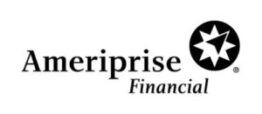
Peter Orlando of Warwick Rhode Island a stockbroker formerly registered with MetLife Securities Inc. has been barred from associating with any Financial Industry Regulatory Authority (FINRA) member in any capacity according to a FINRA Office of Hearing Officers Hearing Panel Decision containing findings that (1) Orlando made unsuitable investment recommendations to an elderly customer and (2) engaged in unethical activities with respect to the customer’s finances and (3) possessed signed but otherwise blank forms from the customer. Department of Enforcement v. Peter Orlando Disciplinary Proceeding No. 2014043863001 (Jan. 29, 2018).
According to the Decision, customer DW, an eighty-one year old investor, designated Orlando as executor of the customer’s will, and agent for the customer’s financial and medical matters. Apparently, during the time that this occurred, MetLife reportedly prohibited brokers from being fiduciaries on customers’ accounts absent the customer being a family member. The Decision stated that Orlando was disallowed regardless of whether the customer chose Orlando to be a fiduciary. Evidently, Orlando disregarded the firm’s policies in this respect.
FINRA’s Hearing Panel also concluded that Orlando’s activities were unethical because of Orlando’s relationship to DW. Specifically, the elderly investor was merely a customer of Orlando. The customer was reportedly steered by Orlando into making him responsible for handling her financial affairs and estate. DW reportedly succumbed to Orlando’s wishes, even naming him as the primary beneficiary of the customer’s account. Critically, Orlando reportedly took the customer to her bank, and assisted her at that bank so she could designate Orlando or his spouse as the beneficiary of the customer’s accounts. This level of influence over DW was found by FINRA to be inordinate and unacceptable.
Evidently, Orlando claimed that Orlando’s actions were done to protect the customer against her own children. Yet, Orlando apparently provided no proof that DW’s children were engaging in any improper activities with regard to the customer’s account. Moreover, the Decision stated that Orlando made claims about DW’s children’s activities that were not substantiated; nothing warranted Orlando’s actions according to FINRA. The Decision further stated that Orlando attempted to get DW to change her legal documents to make Orlando’s spouse the beneficiary of the customer’s estate. FINRA stated that Orlando’s actions amounted to the exploitation of an elderly person that was easily influenced. Consequently, FINRA found that Orlando’s failure to inform the firm and the customer’s family about his actions was violative of FINRA Rule 2010.
The Decision additionally revealed that Orlando poorly advised the customer concerning a variable annuity. Particularly, DW had been advised by Orlando to surrender a variable annuity. Yet, Orlando reportedly had no adequate basis in concluding that the annuity surrender was appropriate. Evidently, Orlando informed DW to surrender the customer’s variable annuity in order for him to manage DW’s healthcare and financial matters. The Decision stated that Orlando caused DW to incur surrender fees totaling $3,900.00 to liquidate the investment.
The Decision also stated that an alternative investment was not offered by Orlando to DW at the time that Orlando advised the customer to surrender the annuity. Ultimately, the customer terminated an annuity that was paying an average of $10,000.00 a year; her assets placed in an account earning .01 percent interest. This reportedly occurred at a time when DW’s financial situation had not been altered; she was comfortable assuming the risks of the variable annuity. FINRA stated Orlando made unsuitable recommendations to the customer given the customer’s monthly income needs; the imposition of a surrender charge; and the nature of the product Orlando sold, with no alternative, being consistent with the customer’s risk tolerance. Consequently, FINRA’s Hearing Panel found Orlando’s conduct violative of FINRA Rules 2010 and 2111.
The Decision also indicated that Orlando maintained blank signed forms from DW to effect the withdrawal of the annuity and transfer of the customers funds. Apparently, Orlando was unable to convince FINRA that there was any basis for Orlando’s possession of those forms. Apparently, Orlando claimed that someone else placed the forms in his possession. The Decision stated that Orlando should have been cognizant of the prohibition against blank signed forms given the risks of documents containing information that is misleading, inaccurate and deceptive. FINRA found Orlando’s conduct in this regard to be violative of FINRA Rules 2010.
Orlando’s registration with MetLife Securities was terminated on December 17, 2014.








